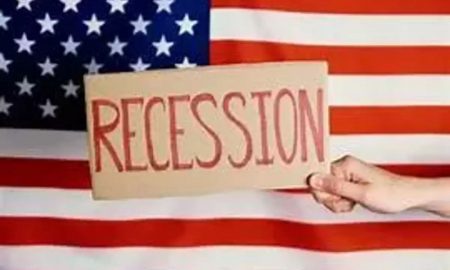
Things You Are Going To Spend Less On In Your Retirement

 Money is an essential thing in retirement, and running out of cash during this period can lead to a lot of anxiety. The thumb rule states that you would need almost 80% of your pre-retirement earnings to live the rest of your life comfortably in retirement. Experts suggest that you save a bit more to make sure you don’t end up without money.
Money is an essential thing in retirement, and running out of cash during this period can lead to a lot of anxiety. The thumb rule states that you would need almost 80% of your pre-retirement earnings to live the rest of your life comfortably in retirement. Experts suggest that you save a bit more to make sure you don’t end up without money.
To make things easy, more than 50% of the pre-retirees plan on extending their working life beyond the age of 65 so that they have enough funds in their kitty. However, this thumb rule of saving 80% of your pre-retirement earnings isn’t suitable for many. As you grow older, consumer spending drops down. Following is a list of things you are going to spend less on in your retirement.
Transportation
The COVID-19 pandemic has taken a toll on mankind, and life isn’t the same anymore. People are working from their homes. If you are one of those who are doing so, your daily routine must have undergone a drastic change. It’s pretty much the same as how your transportation life will be after you take retirement. You wouldn’t be using your vehicle that much. This implies that you wouldn’t have to wait for hours in traffic during the rush hours.
Before the pandemic, an average worker had to spend almost an hour traveling to the office and back. In the present scenario, since you are not going out that much, you will save a lot of fuel. You will also be cutting down the amount of money you used to spend on vehicle maintenance. If you don’t have a car, then most of your money will go on bus and rail fare. In the pandemic period, the average retired household spends much less. Household spending has dropped down by 30.2%, or so does the Bureau of Labor Statistics states.
Clothes
 Before the pandemic, you did not have to stay in confinement within the walls of your home and work remotely. You had to travel to your workplace regularly. This implies that you had to look prim and proper day in and day out. Pressed shirts, clean shoes, high heels were an integral part of your wardrobe.
Before the pandemic, you did not have to stay in confinement within the walls of your home and work remotely. You had to travel to your workplace regularly. This implies that you had to look prim and proper day in and day out. Pressed shirts, clean shoes, high heels were an integral part of your wardrobe.
After retirement, you hardly have to think about all these, and your wallet too gets the break from keeping your work wardrobe up-to-date. The amount of money spent on work apparel by the average working household is approximately $1866 in a year. The sum spent by an average retired household is $1070. You need to consider the money spent on dry cleaning as well. You save that sum in retirement.
Groceries
 You might have dreamt of gorging on various mouth-watering dishes in retirement. The fact is that, in all probability, you are going to spend a much smaller amount on food. In retirement, the average household disburses one-fourth less on food items. The reason behind this is that you have a lot of time in your hand to shop around.
You might have dreamt of gorging on various mouth-watering dishes in retirement. The fact is that, in all probability, you are going to spend a much smaller amount on food. In retirement, the average household disburses one-fourth less on food items. The reason behind this is that you have a lot of time in your hand to shop around.
After all, you have all the time in the world to compare the price tags of similar products, avail coupons, plan out meals, and thus save money. The sum you spent on eating out drops drastically by almost 35% as you are not going out as much as you used to when you weren’t working remotely.
Entertainment
 Since you would have enough time in your hand, you might have already started planning for more fun. It’s a general misconception that you will be able to spend a lot of quality time watching movies, concerts, and much more. However, the situation is going to be different. No one has any idea when the entertainment venues will reopen to the common public post the COVID-19 pandemic.
Since you would have enough time in your hand, you might have already started planning for more fun. It’s a general misconception that you will be able to spend a lot of quality time watching movies, concerts, and much more. However, the situation is going to be different. No one has any idea when the entertainment venues will reopen to the common public post the COVID-19 pandemic.
Your mobility will go through a change as you would be apprehensive about going out in the crowd amidst the pandemic. Occasional going out will be good, but there wouldn’t be much of a movement in retirement.
Several states have waived off property taxes for people aged above 65 and waived off a good share of their retirement income. This will certainly help in easing out the monetary pressures on the retirees. If you will retire soon, consult a financial planning advisor to become money smart in your retirement.
More in Business & Finance
-
`
Curious About Travis Kelce’s Net Worth? Here’s the Scoop!
Travis Kelce’s name echoes through NFL stadiums, synonymous with athletic prowess and electrifying plays. But beyond his touchdown celebrations and record-breaking...
June 10, 2024 -
`
Everything You Need to Know About an Assumable Mortgage
What is an Assumable Mortgage? Whether you are a buyer or a seller, understanding the concept of assumable mortgages can open...
June 6, 2024 -
`
Layoff vs. Fired – Understanding the Crucial Differences
When it comes to job loss, understanding the distinction between being layoff vs. fired is crucial. While both situations result in...
May 30, 2024 -
`
When Are Business Taxes Due 2024? Essential Dates and Deadlines
Tax deadlines can be daunting, but fear not! Let’s break down everything you need to know to stay on top of...
May 22, 2024 -
`
How Much Does Jeff Bezos Make Per Hour? It’s More Than You Think!
Jeff Bezos, a name synonymous with innovation and wealth, stands as one of the world’s richest individuals. While Bernard Arnault and...
May 16, 2024 -
`
What is Portfolio Investment Entity (PIE) and How Can it Benefit You?
In the intricate world of finance, individuals seek avenues to optimize their investments while minimizing risks. One such avenue gaining traction...
May 9, 2024 -
`
What is a Bank Statement? Understanding its Definitions, Benefits, and Prerequisites
Ever wondered where your money goes? A bank statement is like a financial report card, giving you a clear picture of...
April 30, 2024 -
`
Branded Content: A Genuine Way to Connect With Your Audience
Have you ever binge-watched a series on Netflix, only to later realize that the beverage everyone’s sipping on is that brand...
April 23, 2024 -
`
What Car Does Jeff Bezos Drive? Find Out Inside His Exclusive $20 Million Collection
Have you ever wondered what car does Jeff Bezos drive? This man’s tastes in vehicles are as expansive as his business...
April 17, 2024















You must be logged in to post a comment Login